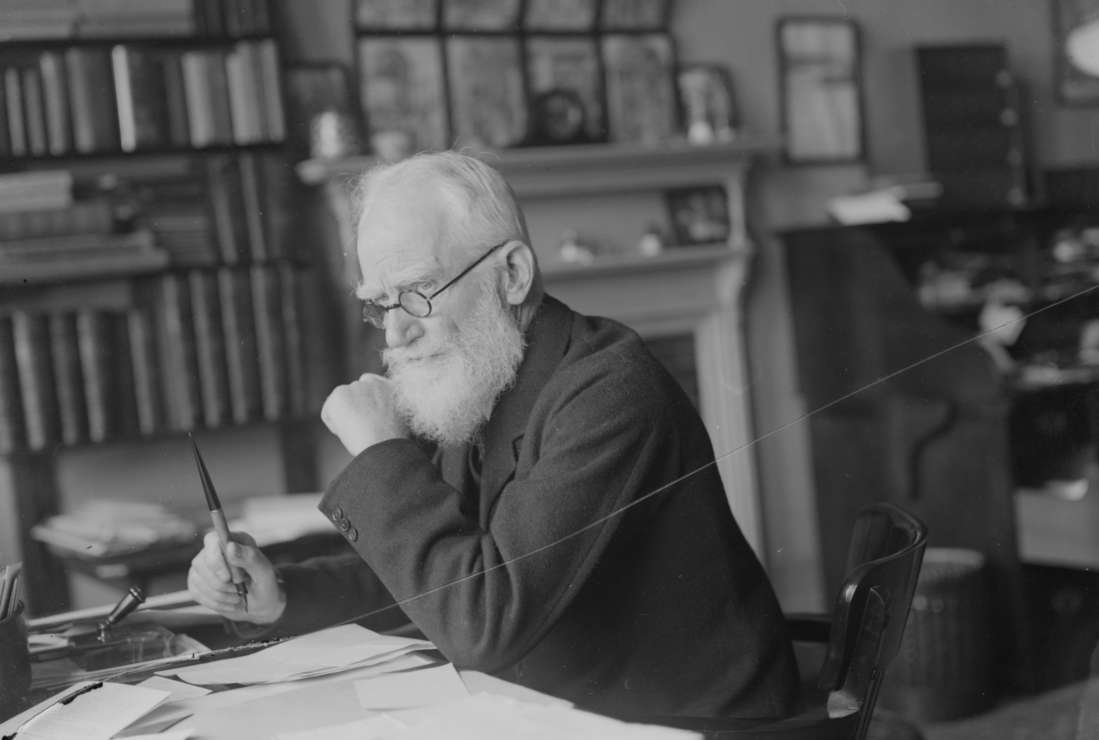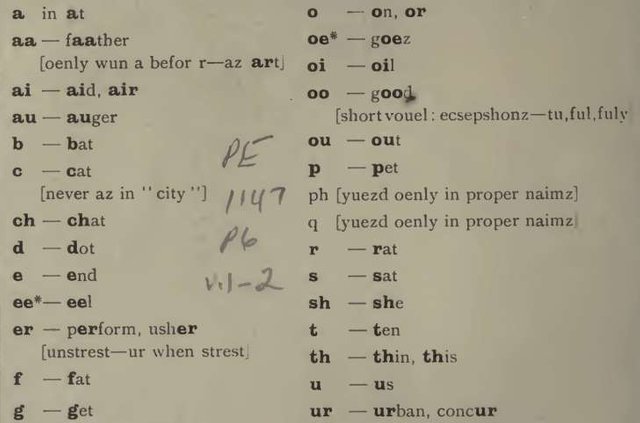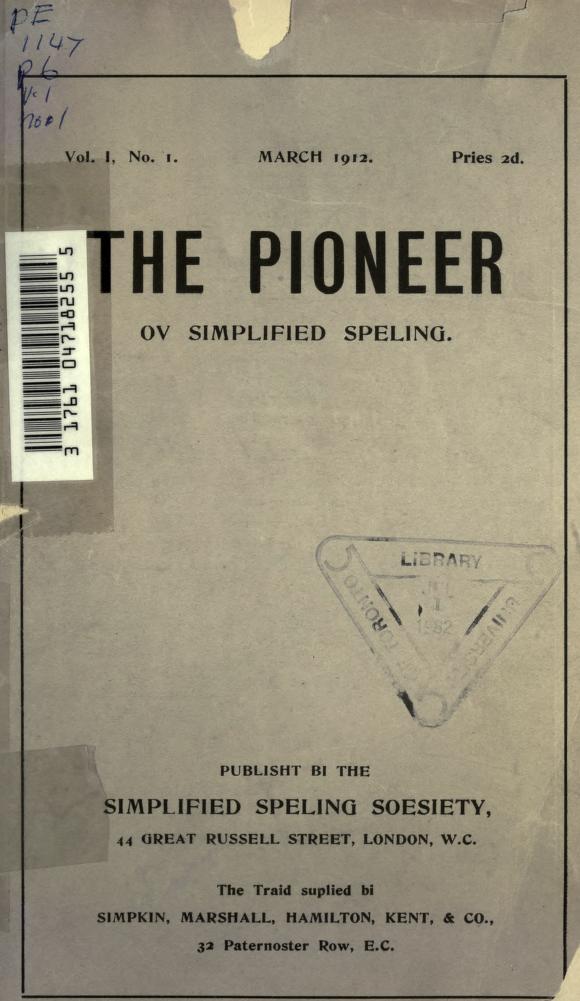The Early 20th Century Society That Tried to Make English Spelling More Intuitive

George Bernard Shaw, a member of the Simplified Spelling Soesiety
The English language is notorious for complex spelling rules—and the many words that break them. We all know i comes before e, except, of course, in certain weird words like, well, weird. We pronounce the letter i like eye if the word ends in an e—except in words like give. Unsurprisingly, even native English speakers get fed up with the inanity of the language’s complicated spelling conventions, and there have been several pushes to replace them with something a little more intuitive over the centuries, as The Public Domain Review highlights.
At the beginning of the 20th century, the London-based Simplified Speling Soesiety was one of the groups pushing for a more logical system of English spelling. Its journal, first published in 1912, refers to standard English spelling as "in sum waiz unreezonabl and retrograid.” So the group went about coming up with new ways to spell common words itself, hoping its alternate approach would catch on.
The Pioneer ov Simplified Speling contained a pronunciation guide, but many of its alternative spellings can be deciphered fairly easily. As long as you peruse carefully, that is. Reading through the publication feels like stumbling through an archaic text from hundreds of years ago, rather than something written during the 20th century.

The Pioneer of simplified speling
Go ahead and wade into how the group, founded in 1908, explained its mission in the first edition of The Pioneer:
The aim ov the Soesiety nou iz tu plais befor the public cleer staitments ov the cais against the curent speling, tu sho hou seerius ar the consecwensez ov yuezing it, and hou much wood be gaind, if sum such sceem az that ov the Soesiety wer adopted.
Did you get all that?
The debut edition of the quirky journal, which you can read on the Internet Archive, includes not just the group’s mission statement and goals, but birthday congratulations to the Society’s founding president, aggregated updates about spelling in the news (like that in an interview, British chemist Sir William Ramsay mentioned a German child never making a spelling mistake), the announcement of the group’s annual meeting (at which members would submit new simplified spellings for discussion), and other minor spelling-related notes.
The whole thing is truly a treasure.

The Pioneer ov simplified speling
Fed-up readers and writers have been trying to wrangle English spelling conventions into something more manageable for essentially as long as there have been standardized spellings. Benjamin Franklin was a spelling reformer during his lifetime, as was Theodore Roosevelt. Soesiety member George Bernard Shaw went so far as to leave his estate in a trust dedicated to reforming the English alphabet when he died.
Though the spelling reformers of yore didn't find much mainstream acceptance for their ideas, there are still modern orthography obsessives who want to revamp the English spelling system to make it easier to learn. And they have a point: For English-speaking children, learning to read and write takes years longer than it does for kids learning to read in languages with easier spelling rules, like Finnish. Considering that one study of 7000 different English words found that 60 percent of them had irregularly used letters, it’s a wonder any of us English speakers have learned to read at all. If only the Simplified Speling Soesiety had gotten its way back in the early 1900s, maybe we would have an easier time of it.
Hi! I am a robot. I just upvoted you! I found similar content that readers might be interested in:
http://mentalfloss.com/article/527745/early-20th-century-society-tried-make-english-spelling-more-intuitive